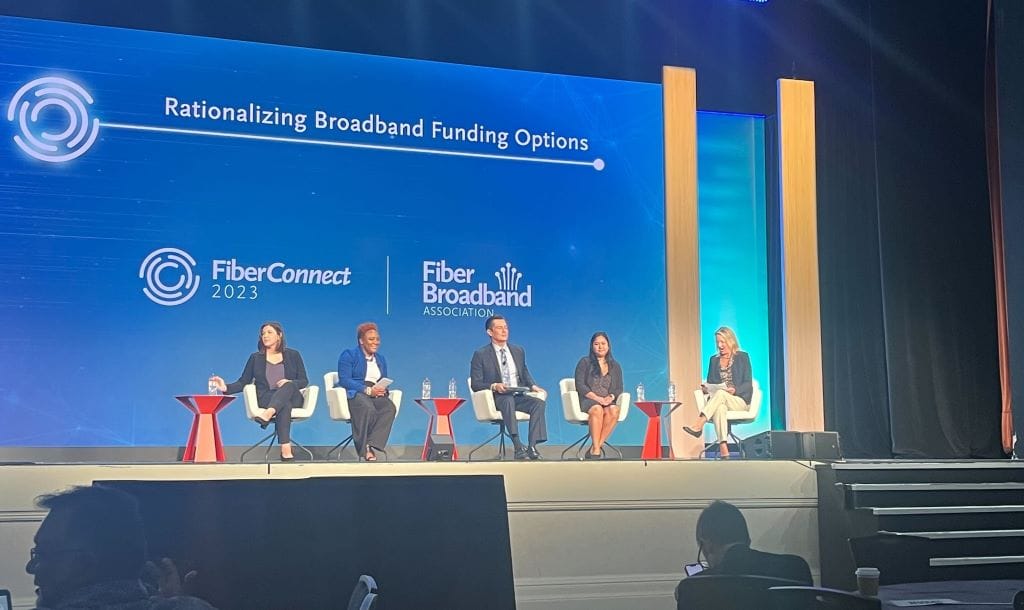Do Not Overlook Other Broadband Programs, say Experts
Other programs can fund BEAD matching requirements.
Teralyn Whipple

ORLANDO, August 30, 2023 – Representatives for various federal broadband funding programs urged providers to not overlook other funding opportunities available for broadband infrastructure programs amidst excitement for the largest-to-date investment in broadband through the Broadband Equity Access and Deployment program at a Fiber Connect conference Wednesday.
Other federal funding programs can help fill in funding gaps that exist through the $42.5 billion BEAD program, they agreed. These programs are currently funding and will fund many programs across the United States that will meet the same goal as BEAD: connect every unserved and underserved address to high-speed internet.
Savid Johnson of the U.S. Department of Housing and Urban Development added that some funding programs, such as the Community Development Block Grant program, allows entities to use the money to meet the minimum match requirement through BEAD. Many experts have expressed concerns that the high match requirement will prohibit some providers from participating in the program.
There is an “enormous amount of funding” in other programs, said Lakeisha Moise of the U.S. Department of Agriculture Rural Development. She added that the USDA has specific niche working with telecom companies and can help address unique challenges in the industry.
Alternative broadband infrastructure programs include the U.S. Department of Treasury’s Capital Projects Fund which provides $10 billion to a COVID-19 pandemic relief fund that includes broadband infrastructure, the USDA’s ReConnect program that funds grants and loans for rural broadband projects, the White House’s Tribal Connectivity Program for tribal connection, and HUD’s CDBG program.
They cautioned providers to be aware of different requirements across different programs. Nicolette Gerald of the Treasury warned that the Capital Projects Fund requires that providers supply 100 Mbps download and upload speeds, rather than the 100/20 Mbps that BEAD requires.








Member discussion